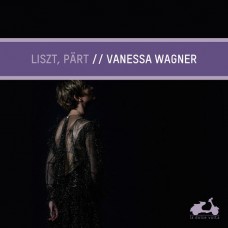LDV46 李斯特/佩爾特:(宗教和詩意的和諧)鋼琴曲集 凡妮莎.華格納鋼琴 Vanessa Wagner/Liszt & Part (La Dolce Volta)
Liszt's cycle of Harmonies poetiques et religieuses, inspired by Lamartine, juxtaposes angelic pieces, mystical atmospheres and powerful frescoes such as Funerailles and Benediction de Dieu dans la solitude. If the Transcendental Studies present singular challenges to the instrumentalist, if the Annees de pelerinage are inspired by the impressions left by the composer's travels, the books he had read, the works of art he had seen, the Harmonies poetiques et religieuses are the mystical face of Franz Liszt's pianistic output. Visions mournful (Pensee des morts) or celestial (Cantique d'amour), darkly heroic epics (Funerailles), noble lamentations (Andante Lagrimoso): here is Liszt in all his diversity. Outstanding even in this company is Benediction de Dieu dans la solitude, one of the composer's finest pieces, a fresco of lofty spirituality. The pianist Vanessa Wagner has chosen to interpolate three pieces by the Estonian composer Arvo Part in these excerpts from the Harmonies poetiques et religieuses. They are characterised by a decanted musical style, deeply religious in its inspiration, rooted in Gregorian chant and early polyphony. This coupling is a world premiere and it is surprising that no one has yet thought of it, so close are the styles of the two composers. The atmosphere of the disc will be deeply mystical, seeking to suspend the musical gesture.
1. Invocation
2. Benediction De Dieu Dans La Solitude
3. Trivium
4. Pensee Des Morts
5. Pari Intervallo
6. Hymne De L'enfant A Son Reveil
7. Funerailles
8. Andante Lagrimoso
9. Fur Alina
10.Harmonies religieuses et poetiques
編號 |
曲目 |
長度 |
作詞 |
作曲 |
演奏 |
樂團 |
演唱 |
指揮 |
試聽 |
|---|


